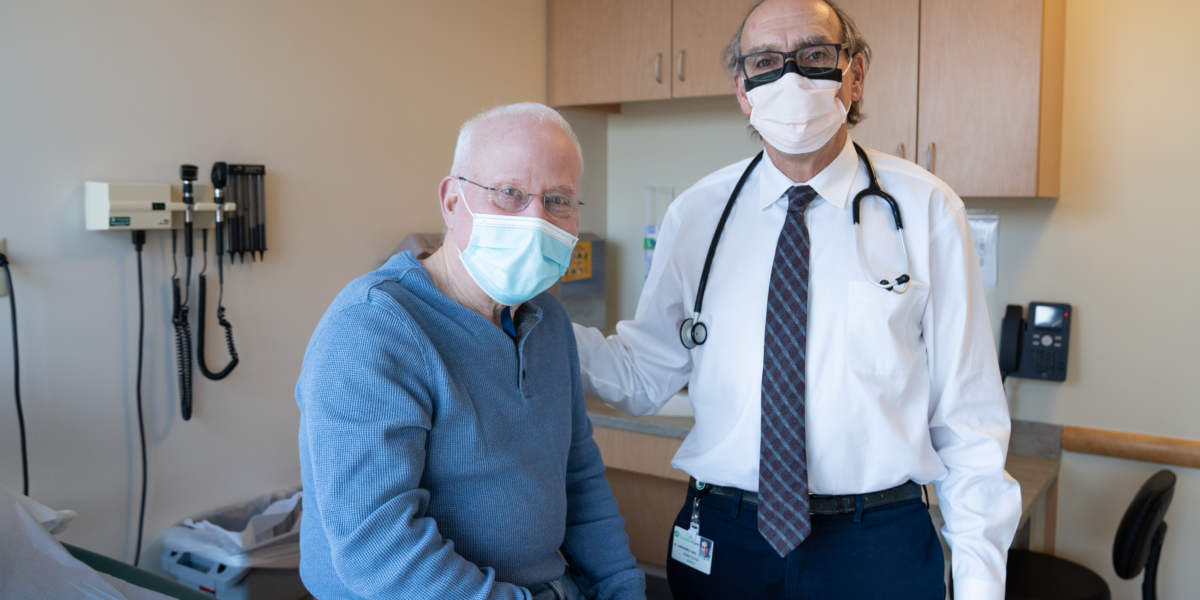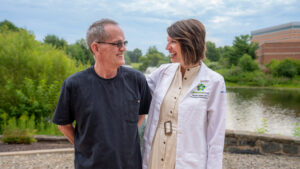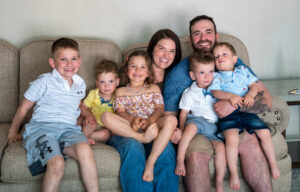Ray Arroyo is a fighter. But he felt he’d met his match in 2006 when doctors diagnosed an aggressive form of blood cancer called B cell lymphoma.
“I knew I had to be strong to beat cancer,” Arroyo said. But cancer had him on the ropes.
After nearly 16 years and multiple cycles of chemotherapy followed by a bone marrow transplant, his cancer kept coming back.
In 2020, Arroyo’s doctors at ChristianaCare’s Helen F. Graham Cancer Center & Research Institute offered a new game plan.
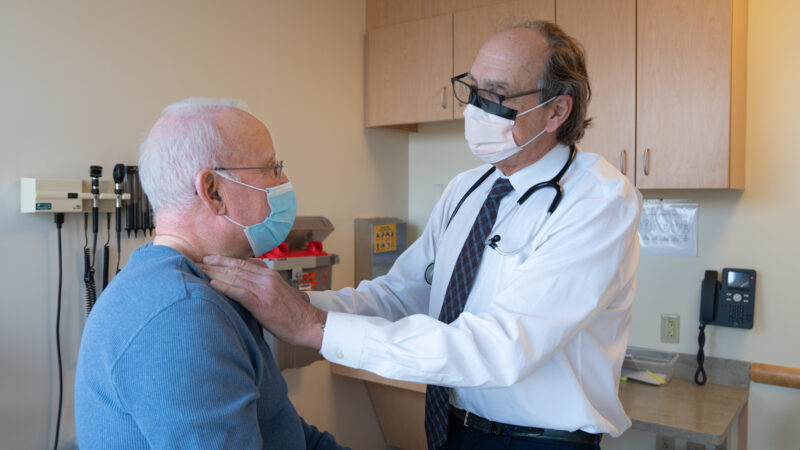
Arroyo was among the first group of patients in Delaware to receive CAR-T cell therapy, a new type of treatment designed to supercharge his body’s natural defenders to attack the cancer.
Now, after almost three years in remission, Arroyo’s cancer may finally be down for the count.
CAR-T cell therapy is only offered in Delaware at the Graham Cancer Center’s Bone Marrow and Stem Cell Transplant Program.
Call 302-623-4500 to make an appointment at the Graham Cancer Center.
“We had reached the point in Ray’s treatment where only a novel approach like CAR-T cell therapy could work,” said hematologist Michael Lankiewicz, M.D. “Ray’s physical and emotional resilience in battling cancer all those years and his determination to keep fighting made him an ideal candidate for this promising new treatment.”
Chimeric antigen, or CAR-T cell therapy, is only offered in Delaware at the Graham Cancer Center’s Bone Marrow and Stem Cell Transplant Program.
The program is one of the few select centers in our region recognized for quality by the Foundation for the Accreditation of Cellular Therapy and certified to treat adult patients with B cell lymphomas using FDA-approved, CAR-T cell therapy. The treatment is also approved to treat leukemia in children and young adults under 25.
CAR-T cell therapy is a highly personalized form of cancer medicine. To prepare for treatment, Arroyo’s own disease-fighting white blood cells, including T cells, were filtered from his bloodstream and sent to the lab for reprogramming.
Afterward, he received an infusion of these modified T cells in a process similar to a blood transfusion.
The lab genetically modified Arroyo’s T cells to sprout new surface tools to improve their ability to recognize, latch on to and destroy other cells including the cancer cells. Specifically, his T cells where trained to target a type of protein on the B cell surface.
Because the reprogrammed T cells continue to multiply in the body after treatment, CAR-T cell therapy is considered a “living drug” that could keep fighting cancer indefinitely.
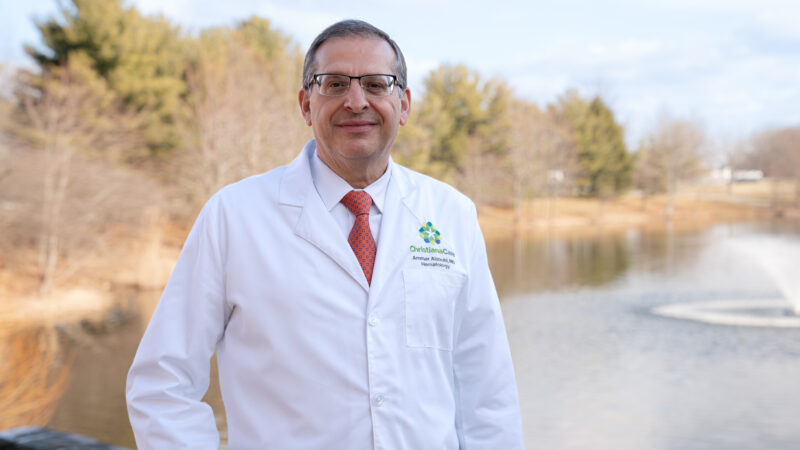
For patients like Arroyo with recurrent or resistant cancers, and where bone marrow transplantation has either failed or is not suitable, this type of cellular immunotherapy offers a potentially life-saving and less toxic alternative treatment.
“Our comprehensive program includes personalized and targeted cellular therapies that are changing treatment practices for some blood disorders like leukemia and lymphoma,” said Ammar Alzoubi, M.D., director of ChristianaCare’s Hematology/Oncology Program. “Our patients know they do not need to travel out of state to benefit from the latest FDA-approved drugs, as well as the latest study protocols offered through the National Cancer Institute’s Clinical Trial Network.”
Although most CAR-T cell therapy patients do not experience the side effects normally associated with chemotherapy, such as nausea, vomiting or hair loss, CAR-T cell therapy is not without risks. A common side effect, which Arroyo also experienced, is cytokine release syndrome. This is an inflammatory condition that causes flu-like symptoms that may be mild or severe.
The transplant team responded quickly to manage Arroyo’s symptoms while he received expert care on the Bone Marrow Transplant and Oncology unit at Christiana Hospital.
“I’m a glass half full kind of guy, and too stubborn to let cancer win,” Arroyo said. “It may be too soon to celebrate, but I’m hoping that maybe we got it this time.”
For CAR-T cell therapy, recovery time outside the hospital can last for a few months or even longer. In Arroyo’s case, supportive care to help boost his healthy B cells continued for a year.
Being close to the Graham Cancer Center made all the difference in Arroyo’s recovery.
“I’ve been coming in for treatment for so long, I should have my own desk here,” Arroyo said. “I love the people here, and I have complete trust that I’m getting a level of care as good as anywhere.”
